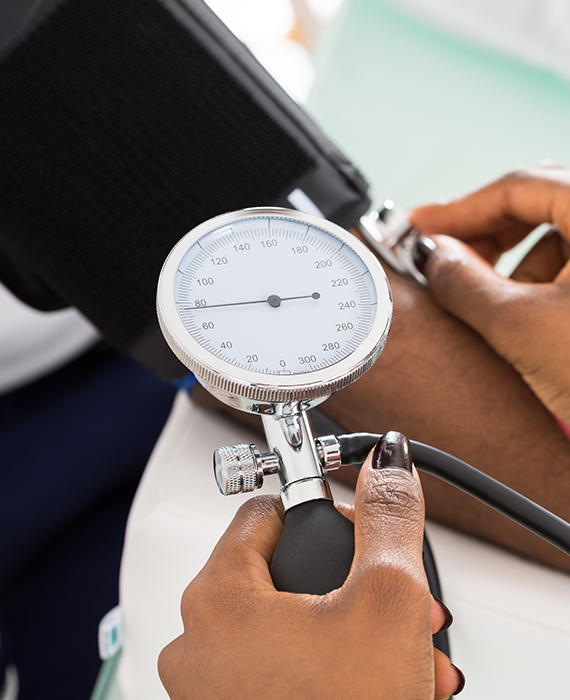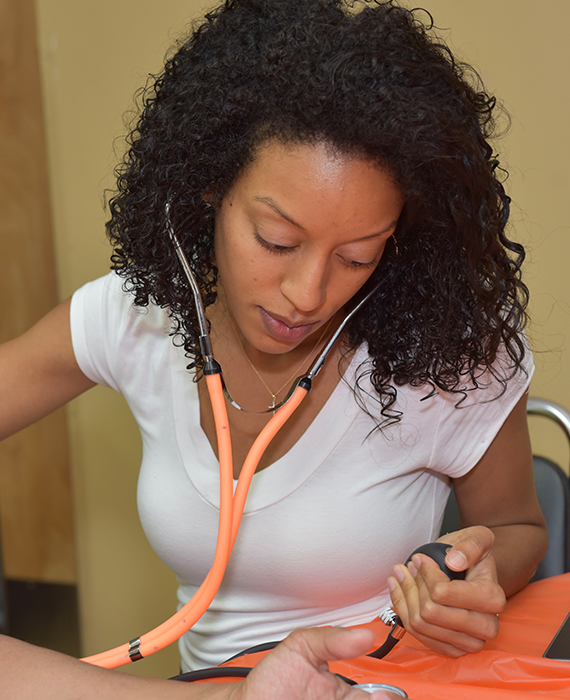High Blood Pressure
High Blood Pressure
Blood pressure is the force of blood pushing against the walls of your arteries. Arteries carry blood from your heart to other parts of the body. Normal blood pressure is a reading of less than 120/80 mmHg.
What is High Blood Pressure?
Blood pressure normally rises and falls throughout the day. If blood pressure stays high for a long time, it can lead to heart attack, stroke, and kidney disease. About 1 in 2 American adults (about 108 million people) have high blood pressure.
Most people with high blood pressure do not have any symptoms. In rare cases, it can cause headaches. You can have high blood pressure for years without knowing it. The only way to find out if you have high blood pressure is to have it measured.

What Does High Blood Pressure Do to the Kidneys?
High blood pressure can constrict and narrow the blood vessels in your kidneys. This reduces blood flow so the kidneys can’t do a good job of removing excess fluid and waste from your body. Excess fluid in the blood vessels can raise your blood pressure even more.

What are the Symptoms of Kidney Disease in People with High Blood Pressure?
Many people in the early stages of kidney disease don’t have any symptoms. As kidney disease gets worse, some people may have swelling. This happens when the kidneys can’t get rid of extra fluid and salt. Swelling typically occurs in the legs, feet, and ankles. Swelling occurs less often in the hands or face.
Symptoms of Kidney Disease in People with High Blood Pressure
Symptoms of advanced kidney disease can include
- Increased or decreased urination
- Weight loss
- Drowsiness, feeling tired
- Trouble sleeping
- Headaches or trouble concentrating
- Generalized itching or numbness, dry skin, or darkened skin
- Muscle cramps
- Chest pain or shortness of breath